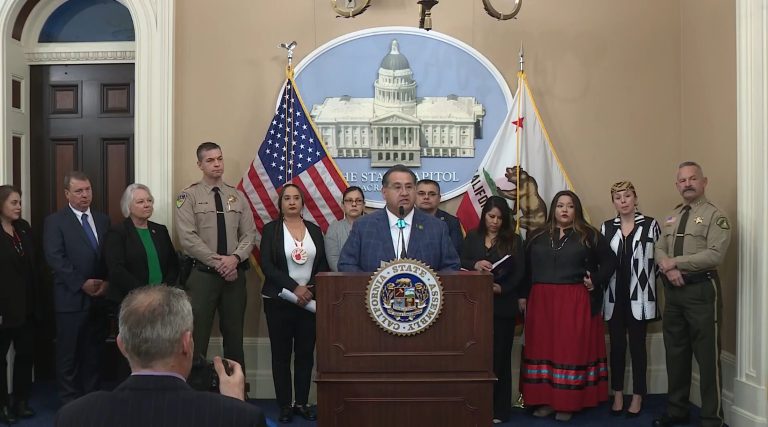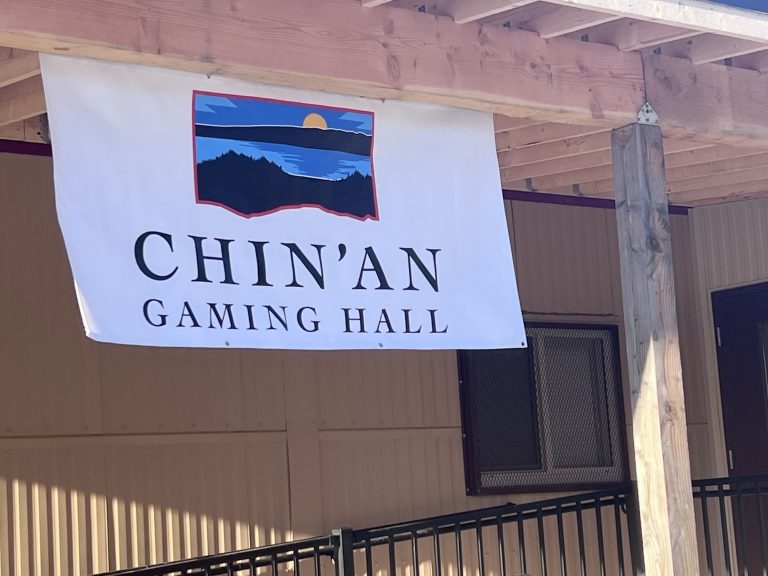Podcast: Play in new window | Download | Embed
The premier of Newfoundland and Labrador has apologized to the Inuit in northern Labrador for the harm suffered in residential schools.
As Dan Karpenchuk reports, Andrew Furey said in his official apology that the provincial government failed to protect Indigenous children in those schools.
 “I extend this apology to the students, the families, and to the people of Labrador. We are sorry.”
“I extend this apology to the students, the families, and to the people of Labrador. We are sorry.”
Premier Andrew Furey has been touring Inuit communities along Labrador’s northern coast.
He is making six stops where he will offer apologies to residential school survivors and their families.
Furey told them that the provincial government turned a blind eye and neglected its responsibility and duty as a government.
“And today with a heavy heart I respectfully and humbly offer an apology to the students of Nunatunavut who attended residential school in Newfoundland and Labrador”
 Furey acknowledged that many children were separated from their families and their communities and sent to the schools were their connections to their culture, language, and families were degraded.
Furey acknowledged that many children were separated from their families and their communities and sent to the schools were their connections to their culture, language, and families were degraded.
Many of the survivors of the five schools in the region shared their stories of sexual and physical abuse or neglect.
When former Prime Minister Stephen Harper apologized in 2008, he excluded people in Newfoundland and Labrador because the five schools in the region were not funded by the Canadian government.
But that changed in 2016 after a class action lawsuit.
 A new children’s book in the Lingít language was celebrated at a gathering in Juneau on Friday, the first of its kind in decades.
A new children’s book in the Lingít language was celebrated at a gathering in Juneau on Friday, the first of its kind in decades.
As Rhonda McBride from our flagship station KNBA tells us, it is the first of a nine-part series.
“You all agree this book is beautiful?”
Tlingit and Haida’s president Richard Peterson held up the book to show off the illustrations by two Lingít artists – Nick and Kelsey Foote.
The book Kuhaantí means “orphan” in Lingít.
It’s a story about a girl taken in by a powerful family and through her struggles, learns life lessons about the tribal values of respect.
- Courtesy: Tlingit and Haida Central Council
President Peterson wishes he had had a book like Kuhaanti to read when he was a boy.
“We didn’t have this opportunity. And it may not make sense, because certainly we had more elders, we had more first language speakers, but we know that things like boarding schools and historic trauma, there was a lot of shame and probably people telling us we couldn’t be who we are.”
But students from the Tlingit, Culture, Literacy, and Language program were full of pride as they performed at the celebration.
Jill Meserve, a Lingít language instructor, says the new book will help learning become more meaningful.
“These kids are so fortunate to see themselves in their teachers, in their curriculum, and in their books and in our community.”
Lance Twitchell, Director of Alaska Native Languages at the University of Alaska Southeast: “If you’re looking for the English translation, it doesn’t exist.
X’unei Lance Twitchell says it’s important that the language stand on its own.
He worked with a team of elders to produce the book including Kaxwaan Éesh George Davis, Shaksháani Marge Dutson, and Daasdiyáa Ethel Makinen,
“I thought of George and I thought of Marge, and I thought of Ethel, and how much I wish I could show this to them.”

Courtesy: Tlingit and Haida Central Council
X’unei produced a video of the book, so everyone can both see and hear the story.
The books are free to children of tribal members.
Raven and the Salmon House will be the next story to be published.
The project was a collaboration between Tlingit & Haida, a regional tribal council; the Goldbelt Heritage Foundation, a Native corporation non-profit; and Cedar Group, a regional economic development agency.
Get National Native News delivered to your inbox daily. Sign up for our newsletter today.









